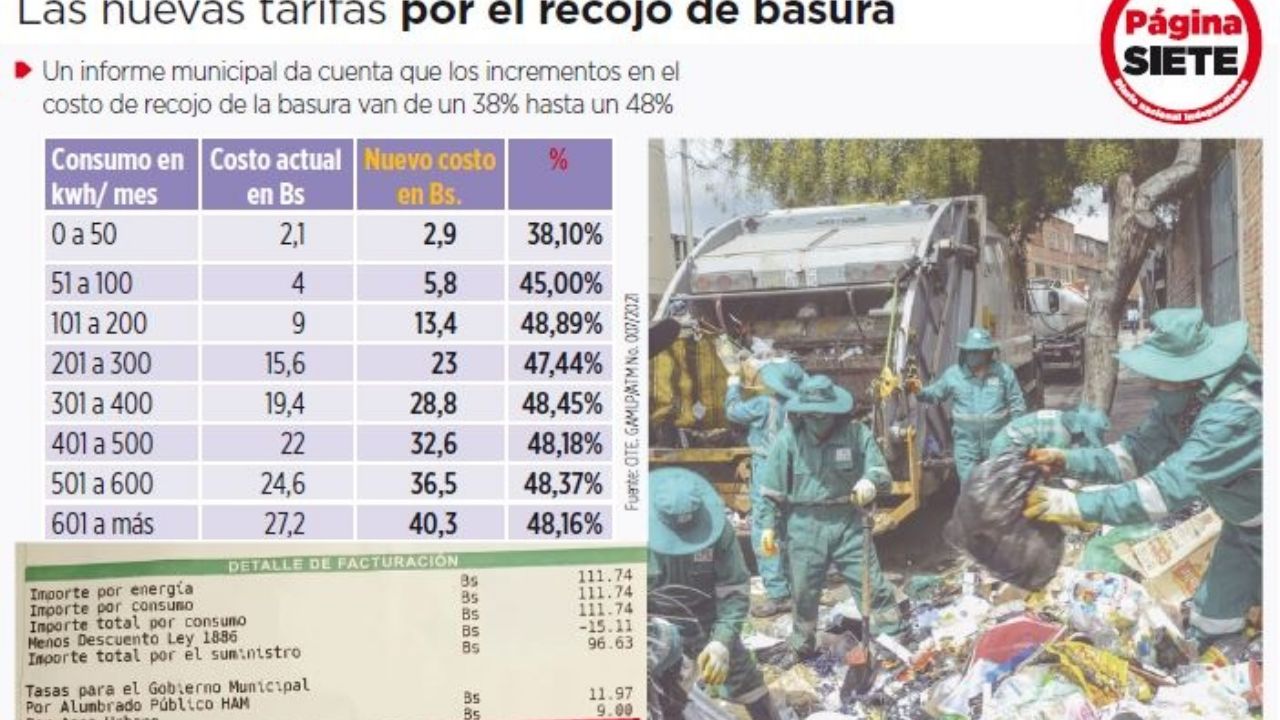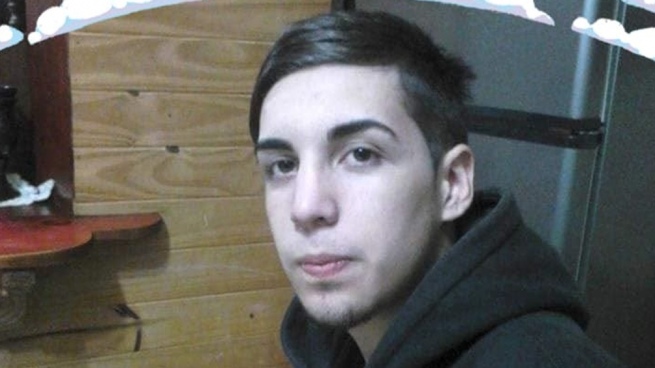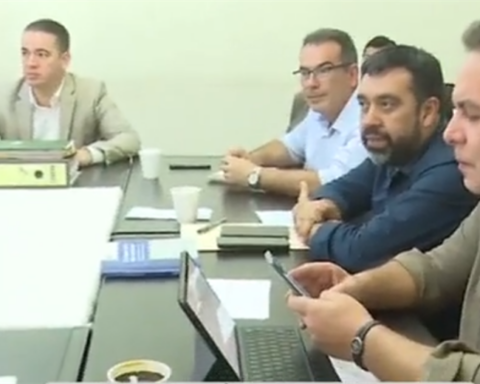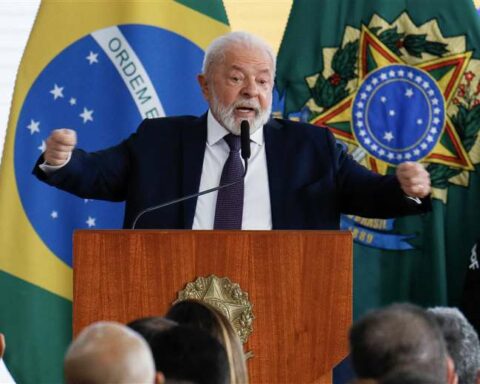Luis Escobar / La Paz
The rate for urban sanitation increased between 80 cents and 13 bolivianos (38% and 48%), depending on the household’s electricity consumption. The Mayor’s Office justified the increase in the Housing Development Units (UFV). However, an expert warned that this indicator only rose 0.6% in this management.
“It’s a minimal update; For example, if your electricity consumption is between 0 and 50 kilowatts (kw per month), in 2021 you would pay 2.10 bolivianos as a cleaning fee. With the update carried out, the year 2022 will pay 2.87 bolivianos, in which an increase of 0.77 cents can be observed,” said Mayor Arias.
The increase mentioned by the Mayor is 38%; In addition, the costs go up proportionally according to the kW consumption of each address in the city. An establishment that consumes more than 600 kw will have to increase from 27 to 40 bolivianos, with a difference of 13.
The administrative resolution of December 20, 2021 defined: “Update the rates of urban assistance considering the variation of the UFV from January 2, 2008 to January 3, 2022 considering the projection of the UFV of the Central Bank of Bolivia (BCB )”.
Roberto Ugarte, former president of the National Tax Service (SIN), considered that an update of 14 years would not correspond. “If it was not updated in the previous steps, it cannot be done at once. What would correspond would be 2021 and only an increase of 0.62% (of the variation of the 2021 management UFV) would correspond. For example, if a taxpayer paid 10 bolivianos, the updated rate should be 10.06 bolivianos,” he explained.
In addition, Ugarte mentioned that the update must have a backup according to a municipal regulation and that it is not automatic. “The Ministry of Economy should make a statement on the matter and carry out the respective control. They must ultimately state whether or not this update is appropriate,” he said.
On the contrary, the Vice Minister of Consumer Defense, Jorge Silva, considered that when updating the UFV, all the years that have passed must be taken into account, as established by the municipal resolution. “There was a breach of duties by the executive (from past administrations) that did not make this update and that it should be periodic, every two or three years,” he said.
Silva assured -in addition- that there are serious contradictions in the way urban cleaning rates are calculated. For example, microentrepreneurs who use machinery have a high consumption of electrical energy despite the fact that they generate almost no waste and many of them recycle everything. Instead, traders in markets that produce a high amount of waste are the ones who pay the least.
“There should be discriminatory rates, not all sectors produce the same amount of garbage. In some areas they do not have the service and they must pay. The same happens with street lighting. The neighborhood associations and users should request that the charge be based on the service they have, “he said.
Protest
The measure was announced over the weekend and leaders of the Federation of Neighborhood Councils (Fejuve) called for a protest at the gates of the Town Hall on Mercado Street. Mayor Iván Arias went out to meet the neighbors to explain the measure, but they did not let him speak.
Later, the authority informed the media that 86% of the total cost of urban sanitation is covered by the Mayor’s Office and only 16% is paid by citizens through their electricity bills. He added that the cost for this service underwent an “update” established by national standards and ruled out an increase.








